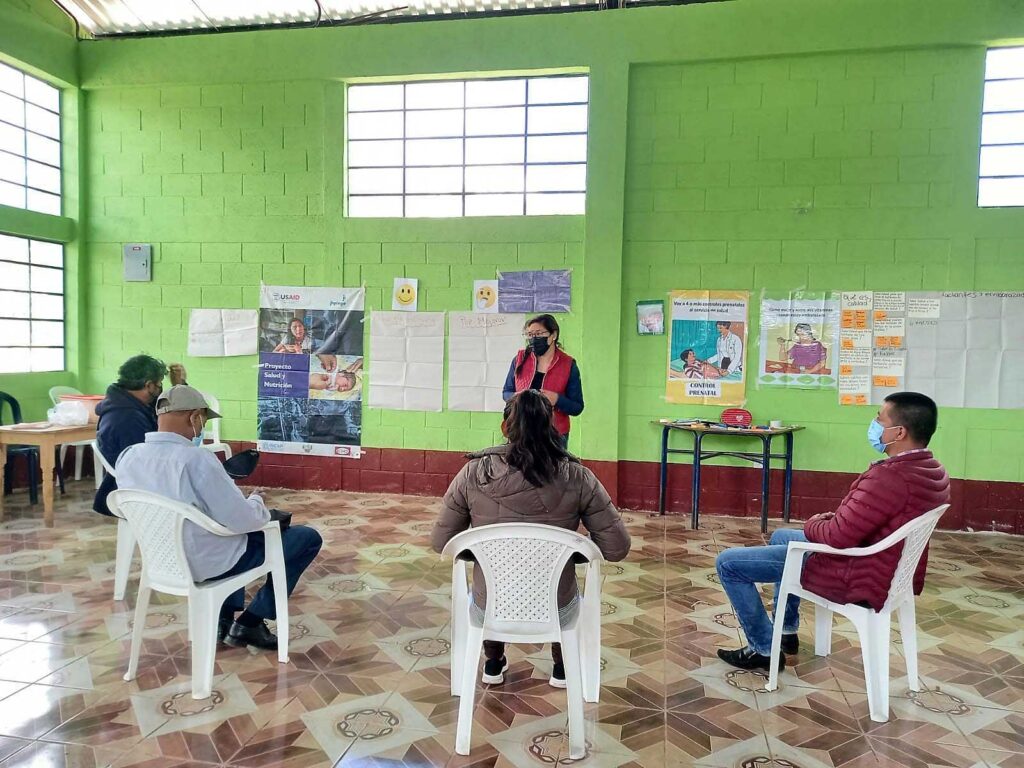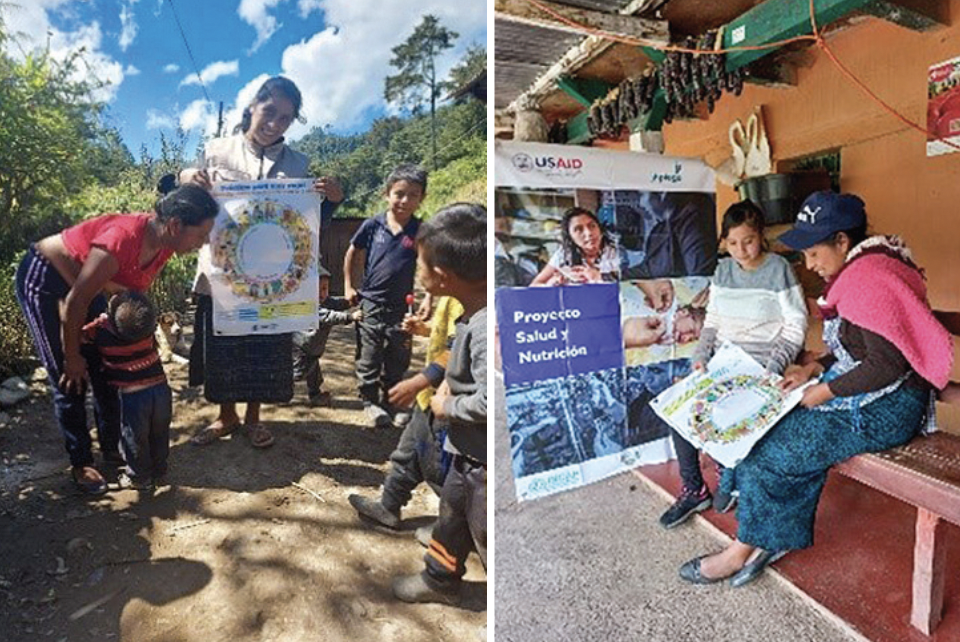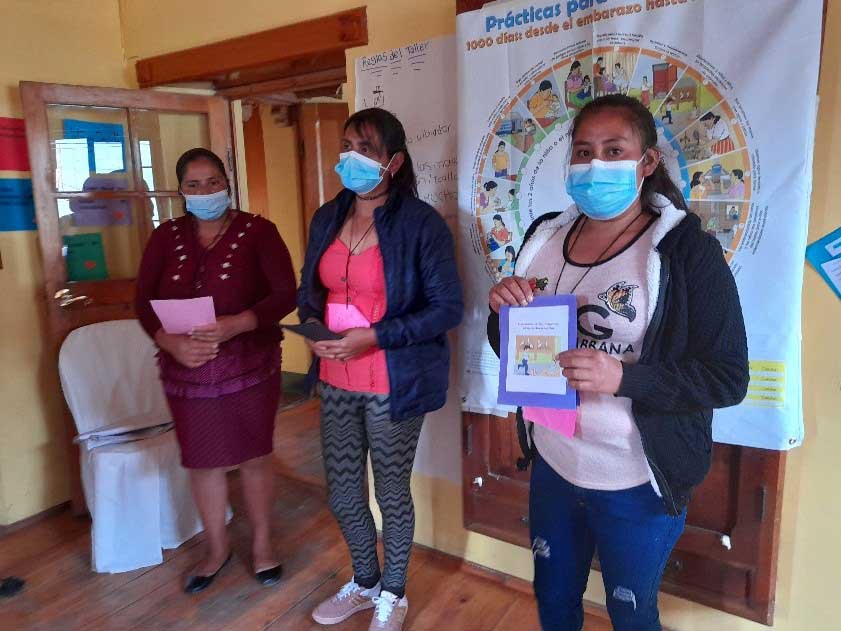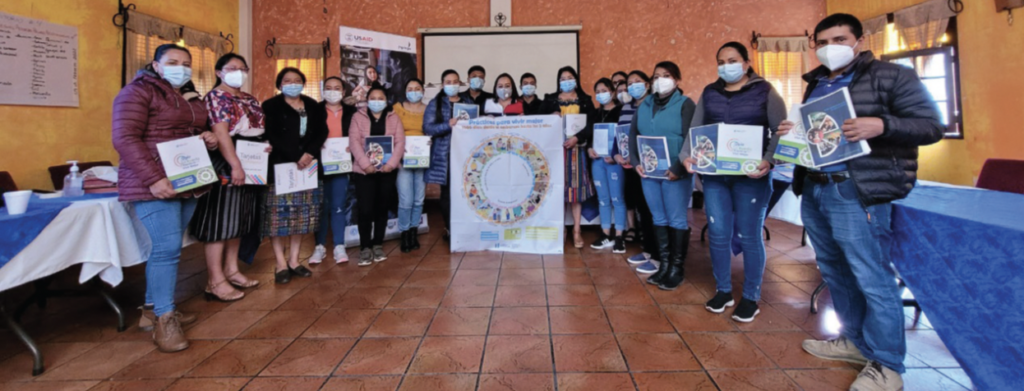By Fernando Arevalo and Indrani Kashyap
In the high mountains of Agua Alegre in Huehuetenango, a community of mostly indigenous people in Guatemala, Brende Evelia Tomás is charting a new path in improving the health and welfare of women, children and families.

Her recent election to the municipal health commission—as one of three women—has put her in a prime position to influence decisions and lead health promotion activities in these rural villages and towns. These activities include helping develop emergency plans, identify strategies and create referral pathways to ensure that pregnant women and children reach the nearest health care facility in case of emergencies. The hope is that the addition of women to the predominantly male community health commission will increase women’s involvement and say in their own health and that of their children.
It’s my first experience on the health commission and I’m sure I [will] learn a lot and help my people in whatever way I can. I feel very happy to support my community.”
Brende Evelia Tomás
Tomás is also a community health worker (CHW)—facilitadora comunitaria—who often spends her days going door to door delivering essential health messages to women and their families. She and dozens of CHWs are leading efforts to decrease stunting or chronic malnutrition in children younger than five years of age and reduce maternal and neonatal deaths through the U.S. Agency for International Development (USAID) Improving Health and Nutrition project in the Western Highlands of Guatemala. Called Proyecto Salud y Nutrición (PSN) in Spanish, this five-year project, implemented by Jhpiego, is working closely with the Ministry of Health in the areas of Huehuetenango, Quiché and Ixil to reach close to a million people, including about 200,000 pregnant and postpartum women and children under five.
Efforts to decrease chronic malnutrition in children

Chronic malnutrition is a significant problem in Guatemala. According to a recent USAID report, almost one out of every two children in the country are stunted (have a low height-for-age), with a much higher prevalence of up to 70 percent in indigenous communities in the Western Highlands. Poor and inadequate nutrition and repeated infections during childhood are the most direct causes of stunting.
“I think women’s participation in health commissions is a game changer,” says Maggie Fischer, Chief of Party of the PSN project. “Women are key health promoters, both for their individual families and their communities. They are better at directing the use of municipal funds towards health- and nutrition-related activities. As important, in terms of roles and responsibilities of men and women in society, it creates a balance. It’s not just men defining the priorities of a municipality, but also having women’s participation in the decision-making process as equal leaders.”
Women are key health promoters

Not just in Agua Alegre, but in many indigenous communities across Guatemala, it is common for men to occupy most leadership positions. “Machismo,” defined as strong or aggressive masculine pride, is a characteristic of life in rural Guatemala. Many families want their daughters to marry as soon as possible so that they can have “a good life.” However, married women are often restricted to managing the house and raising children. To address this issue, the PSN project will work with parents, emphasizing the benefits of men and women sharing in household decisions, birth preparation and childrearing.
Toolkit for health care workers
Jhpiego’s efforts to promote gender equity in these regions of Guatemala reflect the organization’s global gender strategy. Across Africa, Asia and South America, Jhpiego is working to create gender-equitable and inclusive health systems so that all health workers and their clients have the power and opportunity to reach their full potential. Our Gender-Transformative Leadership: A Participatory Toolkit for Health Workers, released in 2020, outlines steps toward reaching equitable representation of women in global health decision-making. A few examples of our gender work include:
- In Liberia, Jhpiego led a gender-transformative, leadership skills-building training for health facility managers, prioritizing women for enrollment.
- In Tanzania and Ethiopia, Jhpiego trains leaders of health education institutions, including doctors, nurses and midwives, in gender-transformative leadership, covering topics such as negotiation, presentation skills and networking. Jhpiego will do similar work under the Guatemala PSN project.
- From Nigeria to the Philippines, we have influenced health policies and trained thousands of health workers to promote gender-responsive services.
In Guatemala, working closely with indigenous leaders, PSN is focused on strengthening women’s roles in the community—whether by preparing a cadre of midwives with university degrees to address a broader range of health concerns (Técnica Universitaria en Partería), building the skills of CHWs, including community midwives, or offering women leadership opportunities in local health commissions.
Wheel of practice for better living

For Tomás, supporting her community includes sharing with women the “Wheel of Practice for Better Living,” 19 universally recommended messages related to improved health and nutrition. An illustrated chart job aid covers three health areas—everyday hygiene practices, healthy habits during pregnancy and care for children up to two years of age. During their neighborhood walks, 118 CHWs, supported by PSN, talk with families about the importance of handwashing, keeping toilets clean and drinking boiled or chlorinated water.
They advise pregnant women to eat well, take their supplements, attend their antenatal checkups, recognize danger signs in pregnancy and prepare a birth plan. For families with small children, they reiterate the importance of exclusive breastfeeding for the first six months, regular health checkups for children, and age-appropriate feeding and nutrition. The CHWs also assist in making timely referrals for women and children to health care facilities when required.
Guatemala is moving forward

Tomás and other women donning new leadership roles and steering efforts to improve health and nutrition of women, children and families in their communities are sure to bring positive change. “Increasing women’s participation and leadership is the goal and Guatemala is moving forward in the right direction,” says Fischer.
Fernando Arevalo is the communications officer for the PSN project. Indrani Kashyap is the senior communications manager for Asia and Latin America.



